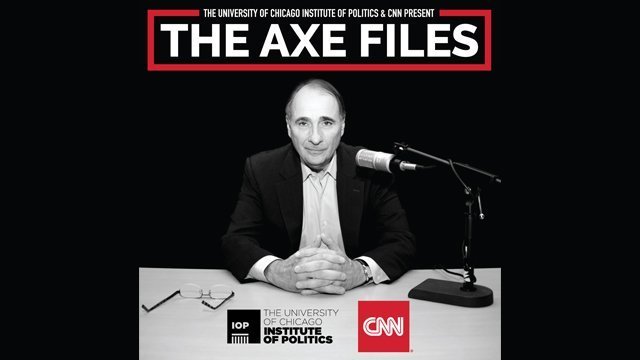President Donald Trump has a lot of running room with the working class voters who propelled him to the White House, according to bestselling author and conservative commentator J.D. Vance.
“The day-to-day, the week-to-week, even the month-to-month isn’t going to matter so much to Trump’s core working class voters,” Vance told David Axelrod on “The Axe Files,” a podcast from the University of Chicago Institute of Politics and CNN.
“It’s going to be the year-to-year,” he added. “And so (Trump’s) got a pretty long leash, but he doesn’t have a leash forever.”
Vance, whose acclaimed memoir Hillbilly Elegy reflects on his childhood in an impoverished Appalachian community, has become something of an interpreter for disaffected working class Trump supporters.
One reason they turned to a wealthy real estate developer from New York City as their champion, Vance says, is because Trump railed against the political and financial elites who they feel have done nothing but make a mess of the country while condescending them in the process.
“Trump was the first guy who was sort of raising the proverbial middle finger to a lot of people that they wish they could have raised their middle finger to but they didn’t have the platform to do it,” Vance said.
Their support for Trump won’t dissipate, Vance argues, based on skirmishes over “alternative facts” and crowd sizes at the inauguration, or Trump’s early moves to staff his White House with Wall Street executives and gut regulations established after the financial crisis.
“If they didn’t like rich people making policy, or rich people serving in positions of power, they wouldn’t have voted for Donald Trump in the first place,” Vance said.
What they want is someone who will fix what they believe is a rigged system. But the President risks a backlash if he proves ineffectual at solving the pernicious problems that have plagued their communities for decades.
“I do think there could be a cumulative effect where he could start to lose some of the core working class support that he developed over the campaign,” said Vance, “especially if, not so much the particular policies people don’t like, but if this sense of things getting worse doesn’t reverse, if there isn’t actual material improvement in people’s circumstances.”
Vance, who describes his conservatism as “communitarian,” said that he believes government has an important role to play in solving the long-term problems in both rural and urban communities. But that assistance must be combined with personal and civic responsibility, as well as new thinking.
“If we take stock of the problems that I write about, and how multi-generational they are,” Vance said, “I just think that we’re lying to ourselves if we think that the way that we’ve approached these issues in the past is especially helpful.”
Vance suggests looking to Germany and countries in Scandinavia for examples of how to effectively undertake workforce development programs—emphasizing support for technical education like apprenticeships, encouraging geographic mobility. He calls these ideas “relatively low-hanging fruit,” but says implementing them would be “really politically difficult” because it “requires a pretty significant shift” in thinking.
As for himself, Vance is moving back to Ohio to start a nonprofit to address the opioid epidemic. When asked if he had future plans to run for office, Vance demurred slightly, but expressed that public service has always appealed to him and is something he would be open to eventually.
To hear the whole conversation with Vance, click on http://podcast.cnn.com. To get “The Axe Files” podcast every week, subscribe at http://itunes.com/theaxefiles.



